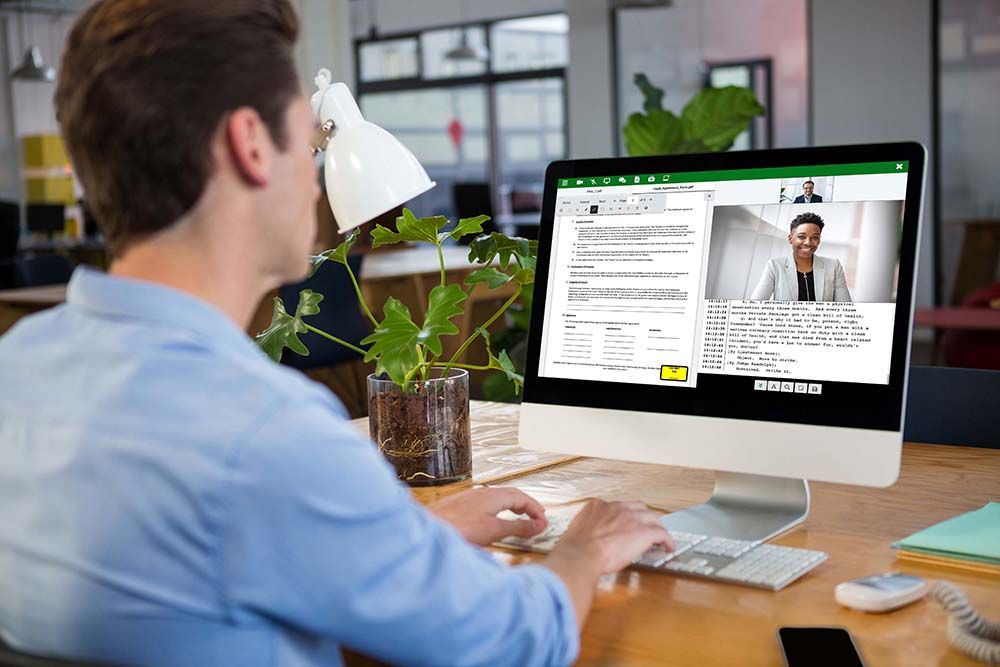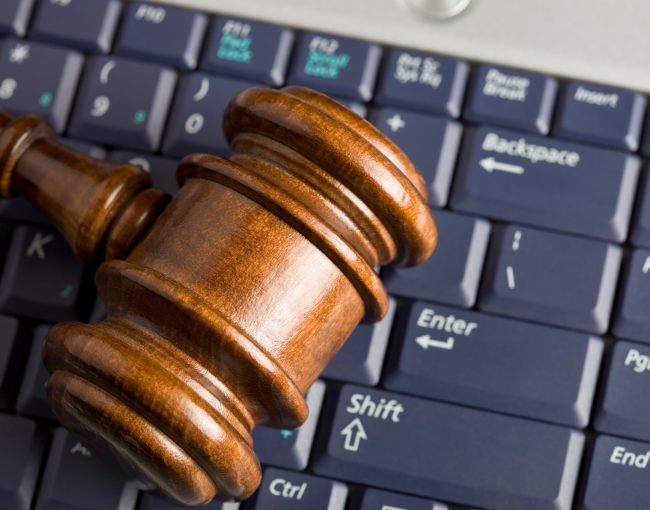Navigating the Future of Legal Procedures With Seamless Remote Depositions Solutions
The landscape of legal procedures is quickly advancing, with remote depositions emerging as a prominent function in this improvement. As modern technology proceeds to advance, the integration of seamless options for remote depositions has become imperative for lawyers seeking reliable and affordable ways to conduct depositions. However, the course to totally embracing this shift is not without its challenges and factors to consider. By checking out the ins and outs of navigating the future of legal proceedings via smooth remote deposition solutions, a clearer understanding of the possibilities and intricacies that exist ahead can be obtained.
The Surge of Remote Depositions
This change has been mostly driven by the demand for flexibility, performance, and cost-effectiveness in legal process (REMOTE DEPOSITIONS). Remote depositions allow lawyers, witnesses, and court press reporters to participate from different places, removing the demand for physical existence in a details deposition room.
Furthermore, the innovations in video clip conferencing platforms and digital devices have improved the general experience of remote depositions, ensuring clear audio-visual communication and protected paperwork of testaments. Attorneys currently have the alternative to seamlessly schedule, record, and transcribe depositions effortlessly, improving the whole process.
As innovation remains to progress, remote depositions are anticipated to end up being a lot more common in the lawful market, using a hassle-free and reliable option for conducting depositions in a hectic and interconnected world. (REMOTE DEPOSITIONS)
Benefits of Seamless Technology Integration
Exactly how does seamless innovation combination enhance the efficiency and performance of remote depositions in the lawful industry? Smooth innovation assimilation plays an essential duty in enhancing remote depositions, providing a myriad of benefits to lawyers. By seamlessly integrating modern technology right into the deposition process, lawyers can conduct depositions with ease, no matter the participants' physical areas. This assimilation enables for real-time communication, paper sharing, and partnership, cultivating a much more efficient and efficient deposition experience.
In addition, smooth innovation assimilation enables safe and dependable information transmission, ensuring that delicate information shared during depositions is shielded. Advanced features such as online displays, digital signatures, and video clip conferencing enhance the general performance of remote depositions, mimicking the in-person experience with added comfort. In addition, the integration of transcription solutions and AI-powered devices can further enhance the deposition procedure, conserving time and reducing the margin of error.

Conquering Obstacles in Virtual Procedures
To properly navigate online procedures, attorneys have to address and conquer numerous obstacles that arise in the digital atmosphere. One of the primary challenges dealt with in online process is making certain secure communication and data defense. With delicate information being shared online, maintaining client discretion and protecting against data breaches is critical. In addition, technological troubles such as inadequate net link or audio/video concerns can interfere with the flow of procedures and influence the top quality of interactions between participants. Legal specialists should likewise adapt to the lack of physical presence, which can hinder non-verbal signs and interaction subtleties important in lawful contexts. Keeping interaction and focus in virtual settings can be testing for both lawful teams and witnesses, potentially influencing the efficiency of the procedures. To mitigate these difficulties, attorneys ought to purchase reliable modern technology, develop clear procedures for virtual procedures, offer training on digital rules, and guarantee backup strategies are in area to deal with technical issues without delay. By proactively attending to these challenges, attorneys can boost the effectiveness and effectiveness of digital proceedings.
Ensuring Safety and Conformity Procedures
In the realm of blog here legal procedures, securing security and guaranteeing compliance procedures is of extremely important significance for maintaining depend on and promoting the integrity of the process. With the shift towards remote depositions, making sure the safety and confidentiality of sensitive information exchanged during these proceedings is important. To attain this, attorneys have to utilize safeguard online systems that offer end-to-end encryption, secure access controls, and conformity with sector laws such as HIPAA and GDPR.

Future Trends in Legal Tech Integration
As the lawful landscape proceeds to advance with remote deposition options highlighting safety and security and compliance, the assimilation of innovative legal technologies is positioned to form future trends in the lawful market. One popular trend that is obtaining traction is using expert system (AI) and artificial intelligence in lawful tech. AI-powered devices can help in lawful research study, contract evaluation, and even anticipating situation outcomes based upon historical information. This combination streamlines processes, lowers human error, and boosts decision-making abilities.
Furthermore, cloud-based remedies are becoming progressively preferred in the legal market. Cloud modern technology supplies boosted flexibility, scalability, and availability, allowing legal experts to function collaboratively from anywhere with an internet connection. This pattern not just improves effectiveness however additionally promotes cost-effectiveness by decreasing the requirement for physical framework and maintenance.
Furthermore, blockchain innovation is making its means right into legal tech combination, offering safe and clear means to handle sensitive info, enhance deals, and validate the authenticity site here of lawful records. By embracing these future trends in legal tech integration, law firms can stay in advance of the contour, enhance customer service, and adjust to the altering needs of the market.
Final Thought
Finally, the assimilation of smooth remote deposition remedies has transformed legal process by offering numerous advantages such as enhanced performance, cost-effectiveness, and access. Despite encountering difficulties in online proceedings, developments in technology remain to address protection and compliance issues (REMOTE DEPOSITIONS). As the legal industry embraces further assimilation of technology, future fads point in the direction of a more structured and reliable legal process